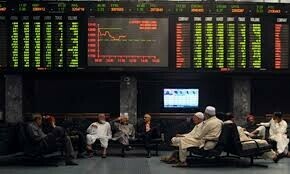TOKYO: The Bank of Japan (BoJ) on Friday said it will charge lenders that leave too much cash on idle deposit with it, introducing a negative interest rate policy for the first time as it seeks to shore up a stumbling economic recovery.
The surprise move rattled stock market investors, with the Nikkei 225 index swinging between gains and losses after the announcement. It closed 2.8 per cent higher. The Japanese yen slid, with the US dollar rising to about 120.70 yen from about 118.50 earlier in the day.
The central bank said it is imposing a 0.1pc fee on some new commercial bank deposits with the BoJ, effectively a negative interest rate. It hopes that will encourage commercial banks to lend more, rather than keeping cash at the BoJ, and stimulate investment and growth in the world’s third-largest economy.
The BoJ said in statement that Japan’s economy is still recovering, but risks from volatile global financial markets could undermine confidence and slow progress toward the central bank’s 2pc inflation target.
Bank deposits with the BoJ will be divided into three tiers. Existing current account balances will earn a 0.1pc positive interest rate. Required reserves held at the central bank by financial institutions will earn zero interest. Any additional current account deposits would incur the minus 0.1pc rate, the BoJ said. The bank “will cut the interest rate further into negative territory if judged as necessary,” it said.
It said the policy would continue as long as needed to achieve its inflation target. In the meantime, the BoJ pushed back its timeframe for achieving that goal from late 2016 to mid-2017. “We think there is an increasing risk that an improvement in the business confidence of Japanese firms and the conversion of deflationary mindset may be delayed, and that the underlying trend in prices might be negatively affected,” BoJ Gov. Haruhiko Kuroda said at a news conference.
The European Central Bank (ECB) has already imposed negative interest rates, after leaving interest rates near zero failed to entice banks into seeking higher returns through lending. In Japan, keeping interest rates near zero has likewise failed to yield the desired results, raising doubts about the credibility of the quantitative and qualitative monetary easing policies announced by BoJ Gov. Haruhiko Kuroda in April, 2013.
Published in Dawn, January 30th, 2016















































